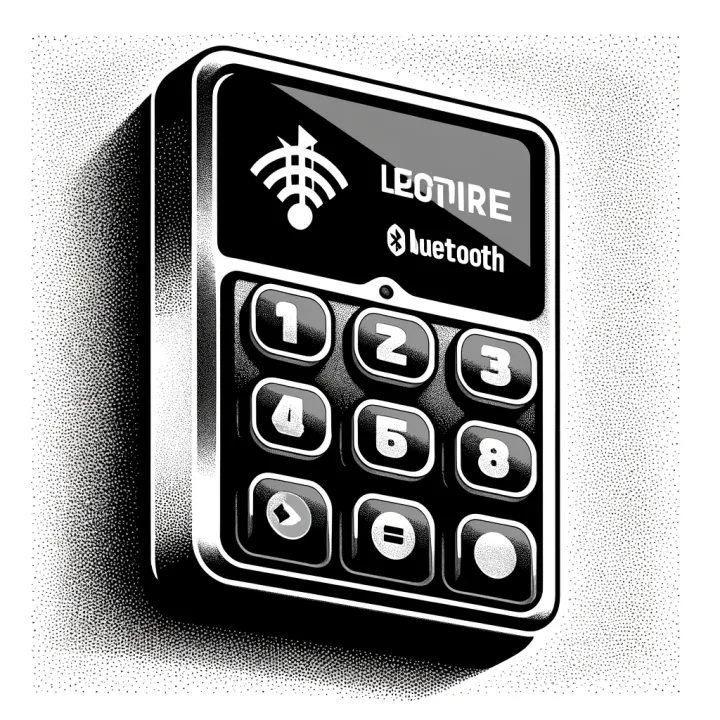Lock Down Your Site, Not Your Units! 😂 Secure Your Self-Storage Website with SSL & DNS Wizardry
Unlock the magic of web security! 🛡️ Learn how SSL & DNS can protect your self-storage site from cyber goblins. No tech spells required! ✨

Boosting Your Self-Storage Business with Secure Online Transactions: A Guide to SSL and DNS Settings
In today’s digital age, the security of online transactions is paramount, especially for businesses in the self-storage industry. As a web administrator, ensuring that your website is not just a virtual front for your self-storage facility but also a fortress protecting your and your customers’ sensitive information is crucial. This post dives into the essentials of SSL and DNS settings, unraveling how they safeguard online transactions and instill confidence in your customers.
Understanding the Guardians of Web Security: SSL and DNS
Before we explore leveraging these technologies, let’s break down the basics.
SSL (Secure Sockets Layer) is a secret handshake between your customer’s web browser and your website. It ensures that any information exchanged during this interaction is encrypted, making it unreadable to anyone else snooping around. When SSL is in place, you’ll see a padlock icon next to your website’s URL, signaling that the connection is secure.
DNS (Domain Name System), on the other hand, acts as the internet’s phone book. It translates your website’s name into a numerical IP address that computers use to locate each other on the web. But DNS does more than just guide users to your site; it also plays a critical role in enforcing security measures that keep cyber threats at bay.
The Role of SSL in Securing Online Transactions
When a customer books a storage unit or makes a payment on your website, SSL ensures that their personal and financial information is encrypted. This means that even if a hacker intercepts the data, it would be a scrambled mess, useless without the unique decryption key held only by the intended recipient (your secure server).
Implementing SSL protects your customers and boosts their confidence in your services. Moreover, search engines favor HTTPS-secured websites, potentially improving your site’s ranking and visibility.
DNS: The First Line of Defense
Adequately configured DNS settings are crucial for directing customers to your legitimate website, not a fake one set up by phishers. Moreover, DNS security extensions (DNSSEC) add an extra layer of verification, ensuring that the website your customers are connecting to is correct, further safeguarding against man-in-the-middle attacks.
Leveraging TXT Records for Enhanced Security
TXT records, part of your DNS settings, are not directly involved in the transaction process but play a pivotal role in securing your domain’s reputation. By setting up SPF (Sender Policy Framework), DKIM (DomainKeys Identified Mail), and DMARC (Domain-based Message Authentication, Reporting, and Conformance) records, you validate emails sent from your domain, reducing the risk of phishing attacks that could compromise your customers' trust.
Implementing SSL and Optimizing DNS Settings
- Acquire an SSL Certificate: Start by purchasing an SSL certificate from a reputable Certificate Authority (CA). Free options like Let’s Encrypt are perfect for small to medium-sized businesses. The CA will verify your domain ownership as part of the issuance process.
- Install and Configure Your SSL Certificate: Install the SSL certificate on your web server once issued. This process varies depending on your hosting environment but generally involves uploading certificate files and modifying your server configuration to serve content over HTTPS.
- Optimize Your DNS Settings: Ensure your DNS settings correctly point to your secure server. Consider enabling DNSSEC for added security, making it harder for attackers to spoof your site.
- Set Up TXT Records for Email Security: Add SPF, DKIM, and DMARC records to your DNS settings. These records help verify that emails from your domain are legitimate, protecting your customers from phishing attempts.
- Monitor and Renew: SSL certificates have expiration dates. Use monitoring tools to keep track of your certificate and DNS health, ensuring that your security measures are always up to date.
The Impact on Customer Trust and Business Growth
By implementing SSL and optimizing your DNS settings, you’re not just securing your website; you’re also building a foundation of trust with your customers. This trust is invaluable in the self-storage industry, where transactions often involve sensitive personal information. Customers are more likely to choose services that demonstrate a commitment to security, directly influencing your business growth and reputation.
Overcoming Challenges
While the process might seem daunting, the benefits outweigh the initial setup hurdles. Common challenges include navigating the technical aspects of SSL installation and DNS configuration. However, many resources are available, from comprehensive guides to professional services that can take the technical load off your shoulders.
Embracing the Future of Web Security
As technology evolves, so do the methods cybercriminals use to exploit vulnerabilities. Staying informed about the latest security trends and maintaining your website’s defenses are ongoing tasks. The future of web security in the self-storage industry will likely involve more advanced encryption methods and automated security protocols, making now the perfect time to fortify your online presence.
Conclusion
Securing online transactions is more than just a technical requirement; it's a commitment to your customers' safety and a cornerstone of your business's online reputation. By implementing SSL and diligently managing your DNS settings, including the strategic use of TXT records for email verification, you're taking critical steps to protect and enhance your self-storage business in the digital realm.
The journey toward better web security may seem complex, but it's essential for ensuring that your customers can trust you with their personal and financial information. Once established, this trust becomes a powerful tool for retaining existing customers and attracting new ones. In a competitive industry like self-storage, where convenience and reliability are key, offering a secure online experience can set your business apart.
Remember, online security landscape is ever-changing, and staying ahead requires continuous learning and adaptation. Encourage your team to stay informed about the latest security practices and consider engaging with cybersecurity professionals who can provide expert advice tailored to your business needs.
Ultimately, the effort you put into securing your website reflects the value you place on your customers' trust and safety. This is an invaluable aspect of customer service and business integrity in the digital age. So, as you move forward, consider your investment in SSL and DNS management not just as a technical task but as a strategic move toward building a stronger, more secure future for your self-storage business.
By adopting these practices, you're not just enhancing your website's security but also positioning your business as a leader in the self-storage industry, prioritizing customer safety and data protection. This commitment can significantly contribute to your business's growth, reputation, and ability to compete in a rapidly evolving digital landscape.
In conclusion, securing online transactions through SSL and DNS optimization is a journey worth taking. It safeguards your business against online threats, fosters customer trust, and supports the overall growth of your self-storage enterprise. Embrace these technologies and strategies, and watch as they transform your security posture, relationship with your customers, and place in the digital marketplace.


